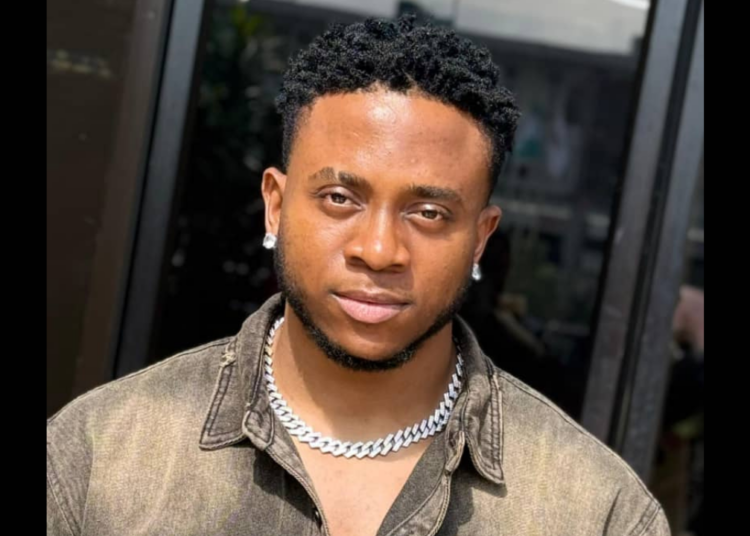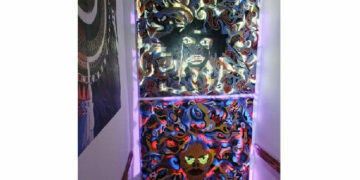Ajayrock, the Nigerian trap artist known for pushing boundaries in his music, has once again captured the attention of fans and critics with the release of his two groundbreaking albums: ‘The Villain’ and ‘The Villain II: HADES’.
The projects reflect not just his growth as an artist but also his evolving philosophy on life, success, and the importance of self-prioritisation.
In ‘The Villain’, Ajayrock introduces a concept that challenges the traditional notions of good and evil.
The album’s title comes from his realisation that, in real life, being the “hero” often comes at the cost of one’s happiness and personal well-being.
“I conceptualised ‘The Villain’ as a metaphor of the benefits you get when you prioritize yourself and the people that matter the most,” Ajayrock explains. “When we were kids, we always adored the heroes because they tend to win in movies, while everyone despises the villains. I realized in real life, being a hero won’t get you anywhere.
“The opening quote from The Villain, “I’m bad, and that’s good. I will never be good, and that’s not bad,” captures the essence of this project.
Ajayrock uses the villain archetype as a metaphor for self-preservation, arguing that constantly trying to please everyone can lead to burnout and unhappiness.
“You get to care about what people think or feel and not what’s best for you. You get to please everyone first before yourself,” he adds. By embracing the “villain” within, Ajayrock suggests that prioritizing oneself and loved ones is not an act of selfishness but an essential strategy for thriving in a harsh world.
This shift in mindset is central to Ajayrock’s message throughout The Villain. Tracks like “Elon Musk” featuring King Vin and “City Girl” featuring Tima dive into the consequences of self-centeredness, ambition, and relationships, echoing the idea that sometimes, putting oneself first is necessary for success.But the journey doesn’t stop there.
The Villain II: HADES takes the themes introduced in the Villain and digs deeper, presenting a darker, more introspective look at the challenges one faces on the road to self-discovery and personal growth. “HADES” represents the emotional and psychological struggles—the ‘hell’ that one must go through before emerging stronger.
If The Villain is about reclaiming your power by putting yourself first, HADES is about surviving the pain and hardships that come with that decision.
Throughout the 5-track album, Ajayrock touches on themes of perseverance, ambition, and the quest for self-discovery. Tracks like “Alive”, and “Try Me” featuring Vo Hawks address the pressures of success and relationships, offering listeners a glimpse into Ajayrock’s personal journey.
These songs have resonated strongly with fans, garnering thousands of streams across platforms like Apple Music, Spotify, and Audiomack.
The two albums complement each other, with The Villain laying the philosophical groundwork for self-prioritization, while HADES explores the emotional journey of dealing with the consequences of those choices.
Together, they create a cohesive narrative about choosing oneself and embracing the complexities of life.
Ajayrock makes it clear that he’s not encouraging his listeners to adopt villainous traits in the literal sense, but rather to see the metaphorical value of his message. “I’m not influencing anyone to be a villain with this album,” he says. “But it’s a metaphorical way of choosing yourself first before anyone and making decisions on what’s best for you.”His reflection on heroism adds weight to the metaphor: “Being a hero requires a lot more risk. Like, what if you get killed trying to save everyone ?
Life is crazy! People gon’ forget about you when you’re gone regardless.”
The lesson from The Villain and HADES is clear: while heroes may be celebrated in stories, it’s the “villains” who look out for themselves who often succeed in real life. As Ajayrock playfully concludes, “The villains don’t win in movies, but they definitely win in real life.”Ajayrock’s bold new approach to his music and life is resonating with fans across streaming platforms like Apple Music, Spotify, and Audiomack.
With The Villain and HADES, he’s delivering not just music but a message: love yourself, prioritize the people that matter most, and don’t be afraid to be the villain in your own story if it means achieving your goals.





